CLAT Coaching
Let Law Gurus help you you in cracking the CLAT Exam

Talk to your 'Law Guru'
Get you Guru Mantras for preparation
CLAT Course Structure
Let’s dive into our course structure of CLAT Exam
Course Mode
• Online
• Classroom
Course Durations
• 1-Year Programe
• 2-Year Program
• Crash Course
Study Material & Highlights:
- Printed Books (Fundamentals): 8 Comprehensive Volumes
- Full-Length Mock Tests: 50+
- Sectional Tests: 150+
- Daily Practice Problems (DPP): 200+
- Monthly Magazine: Comprehensive coverage of Current Affairs and General Knowledge with MCQ Quizzes
- Daily Current Affairs Sheets: Detailed coverage of daily significant events
Note: All Mock Tests, Sectional Tests, and DPP materials include answer keys and detailed explained solutions.
At Dehradun CLAT Academy, students engage in a well-structured weekly schedule with 6 days of lectures, offering 12 hours of focused learning each week. The academy provides specialized sessions on Current Affairs and General Knowledge, along with focused editorial analysis sessions to help understand top newspaper editorials. Additionally, dedicated doubt-solving sessions ensure that all queries are addressed.
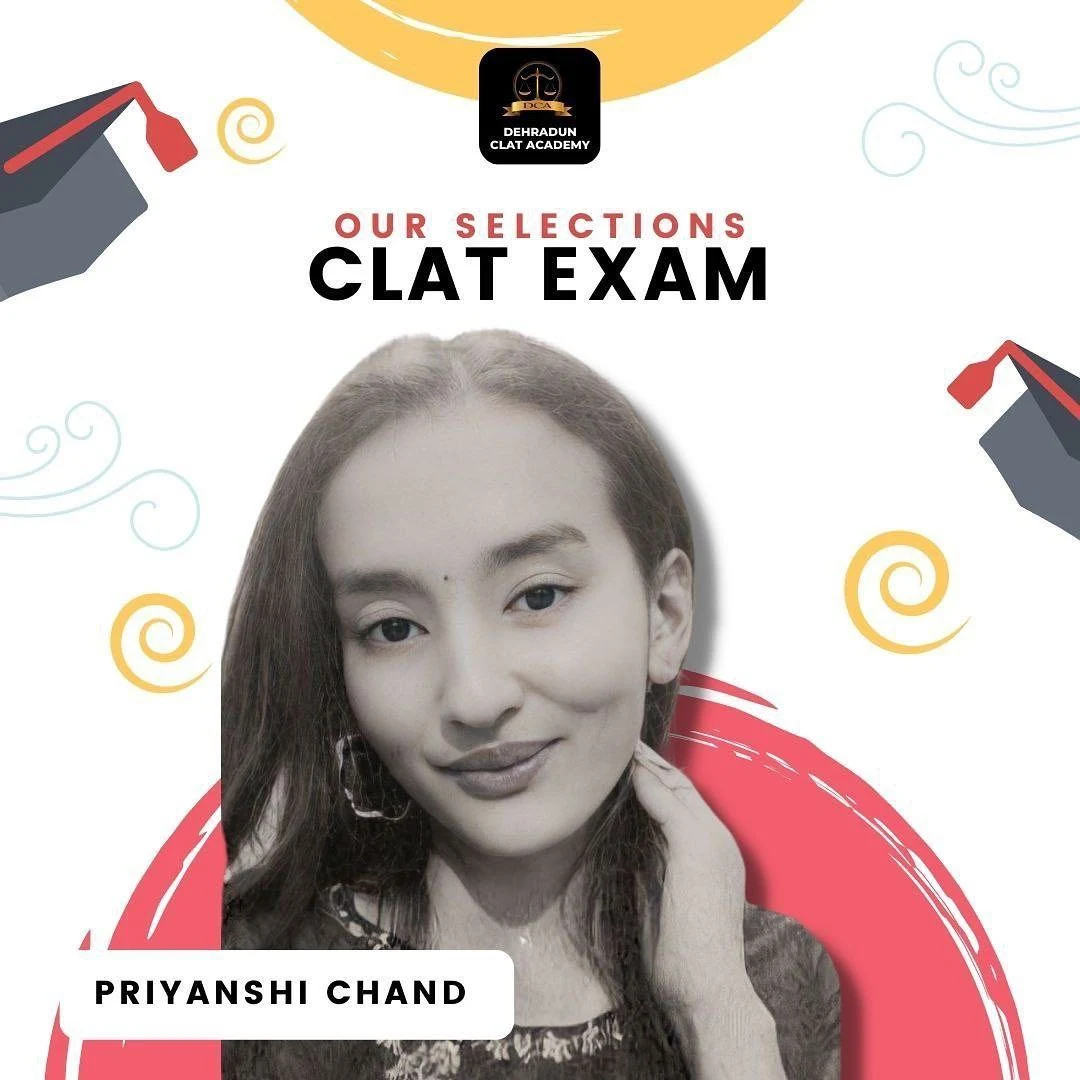

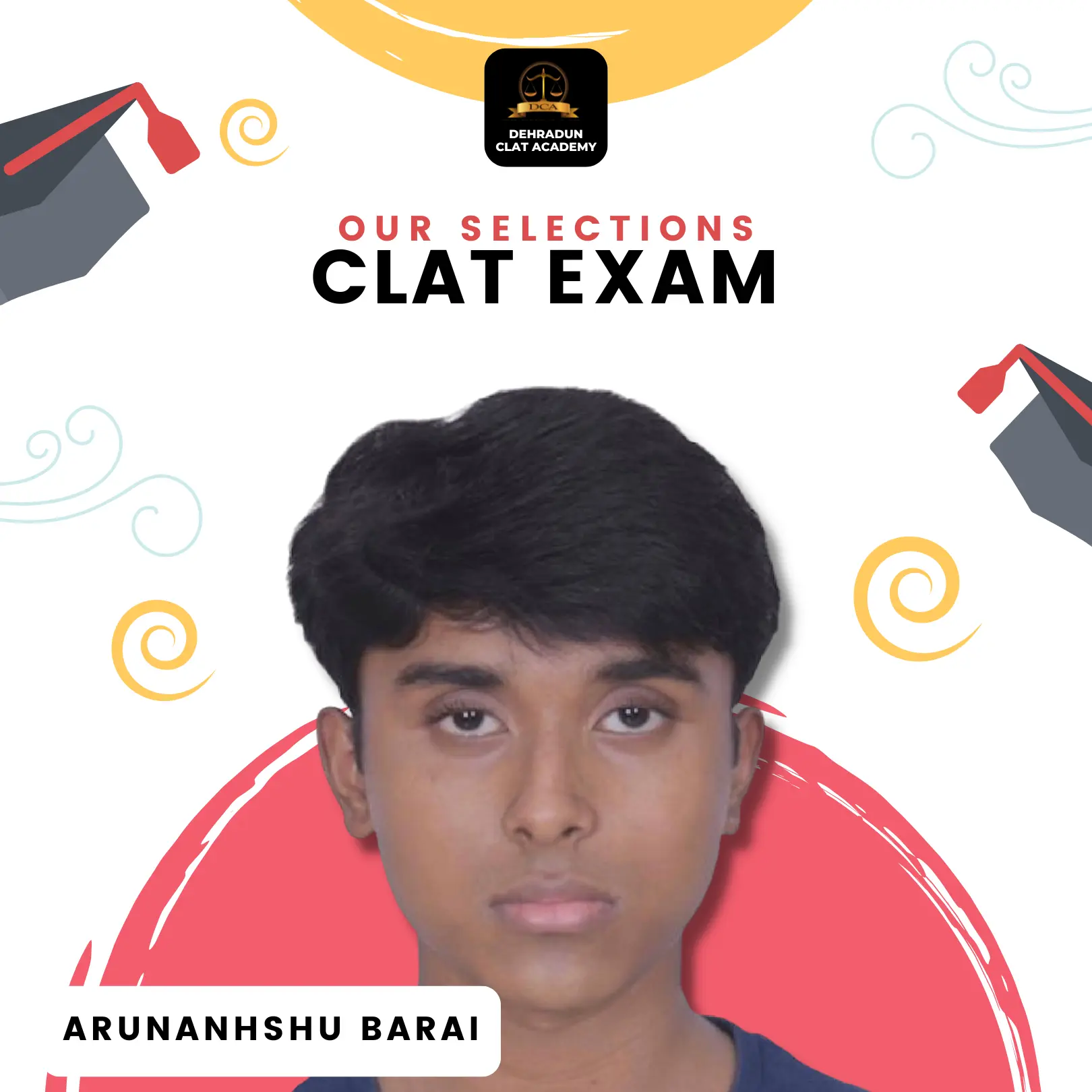



What's inside CLAT Course?
Let Law Gurus help you you in cracking the CLAT Exam
Get Started with Free Counseling: get in touch with your Law Gurus. They’ll guide you through the process, answer your questions
CLAT Prep: Start your CLAT preparation with the help of LAW Gurus.
Grow Beyond Books: Personality development and overall grooming sessions, along with debate and moot court sessions.

Learn by Doing: Theoretical as well as practical classes. Enjoy learning with a mix of classroom lessons and hands-on practice.
Law Gurus’ Mentoring: Receive guidance from Law Gurus who provide special mentoring to help you master the legal field.
Tailored Just for You: Your lessons are tailored to make you strong where you’re already good, and better where you’re not.

What students say about Law Gurus?

Why Choose DCA?

- Experienced Mentors: Professional and highly skilled in guiding CLAT aspirants
- Personalized Mentorship: One-on-One mentoring sessions tailored to individual needs
- Custom Growth Plans: Personalized strategy and growth plans for each student
- Small Batch Sizes: Ensuring individual attention and an interactive learning environment
- Interactive Classrooms: Engaging and participative classroom sessions
- Regular Assessments: Continuous evaluations and constructive feedback
Want to Join CLAT Coaching?
Here is the admission procedure to enroll in Dehradun CLAT Academy’s CLAT Coaching program.

- First you need to fill contact form on our website (Click here>>) or you can directly call us on +91-8266825595.
- Get a counselling session with your Law Guru.
- After clearing all the doubts, start the registration process. The registration fee is 500 (NON REFUNDABLE)
Meet Your Law Gurus

Learn with Law Gurus
Welcome to our Video Section! Here, you’ll get a quick glance of your Law Gurus.
Gallery
Take a quick glance at our offline classes at Dehradun CLAT Academy
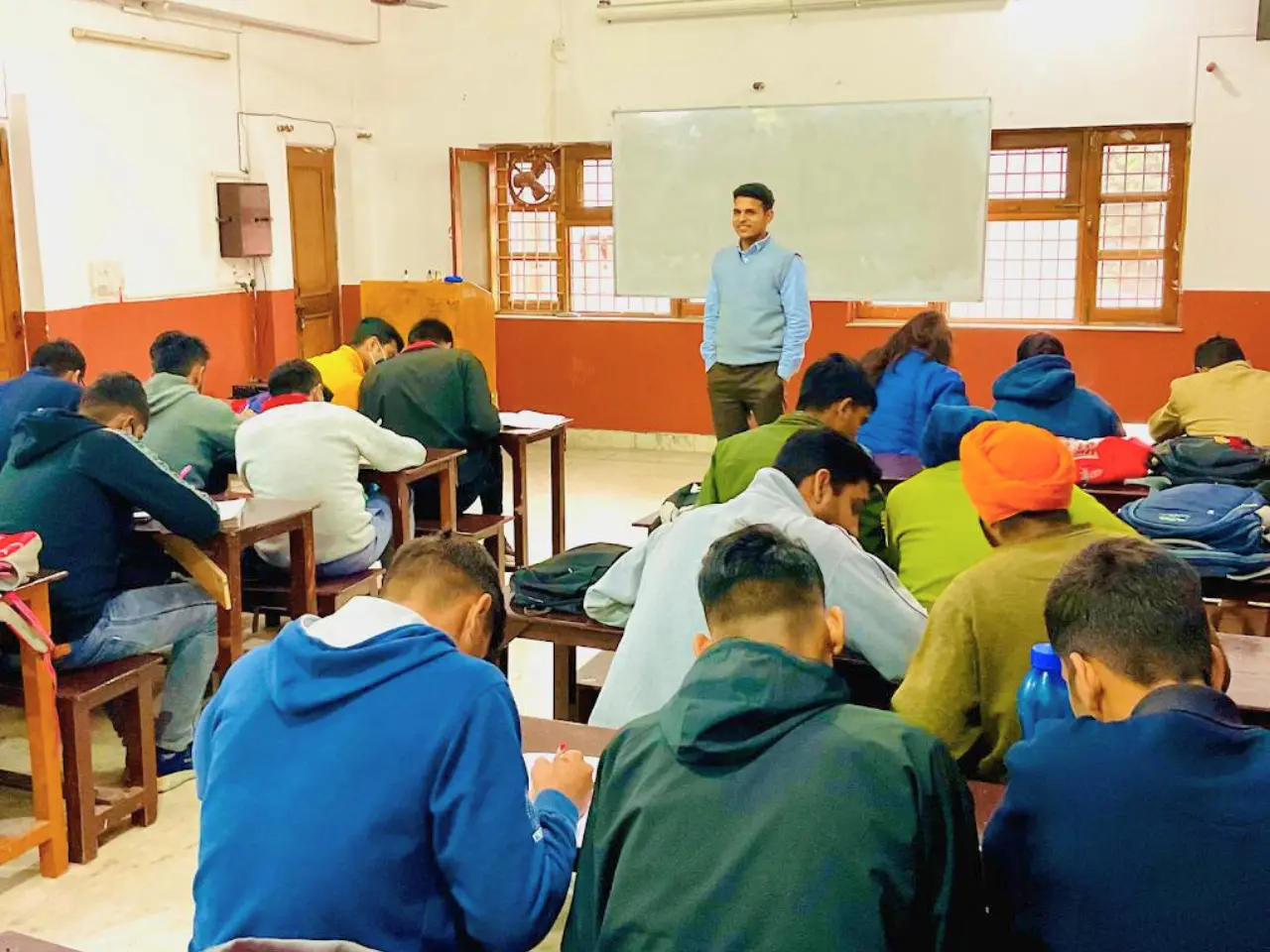
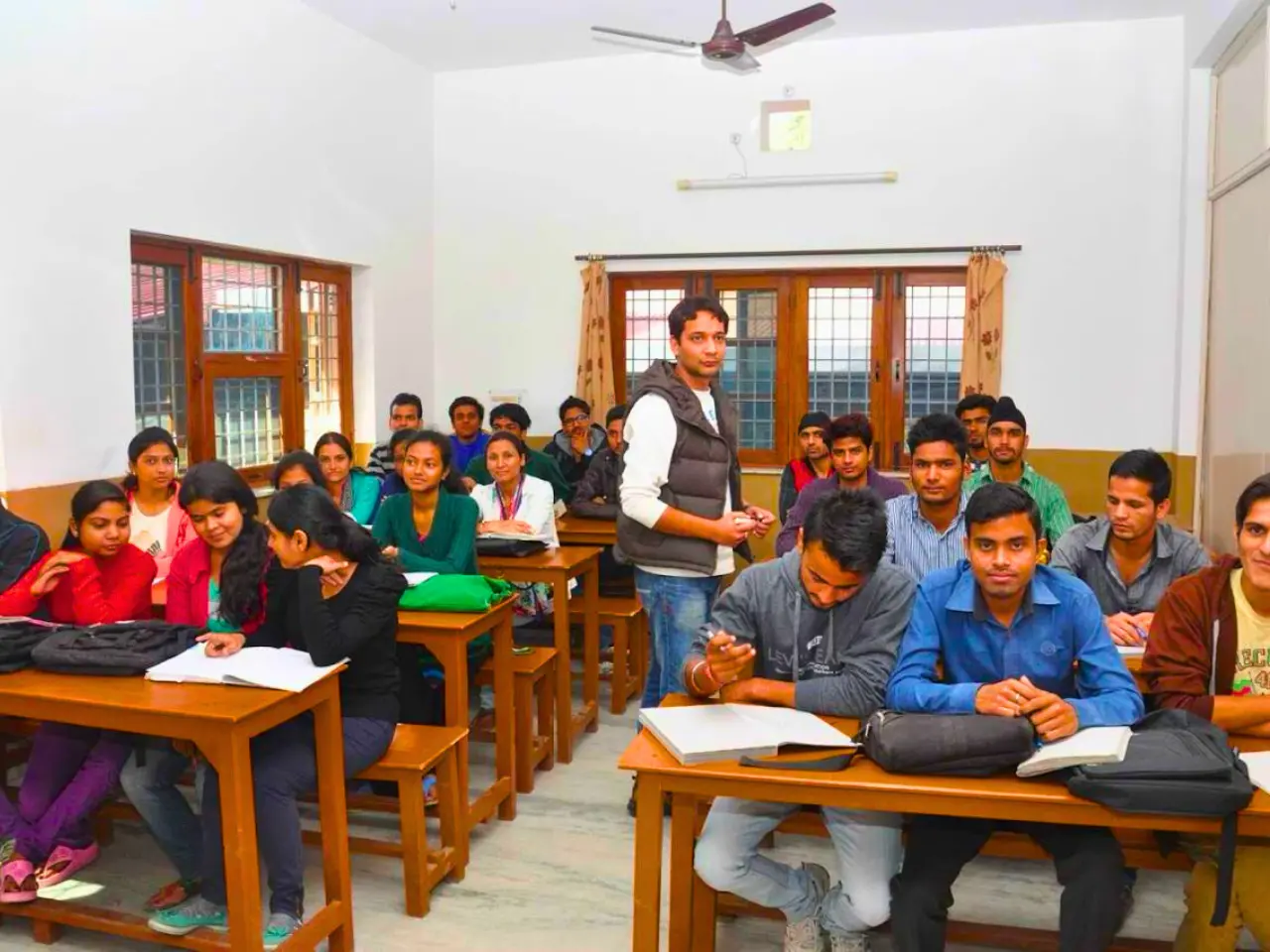


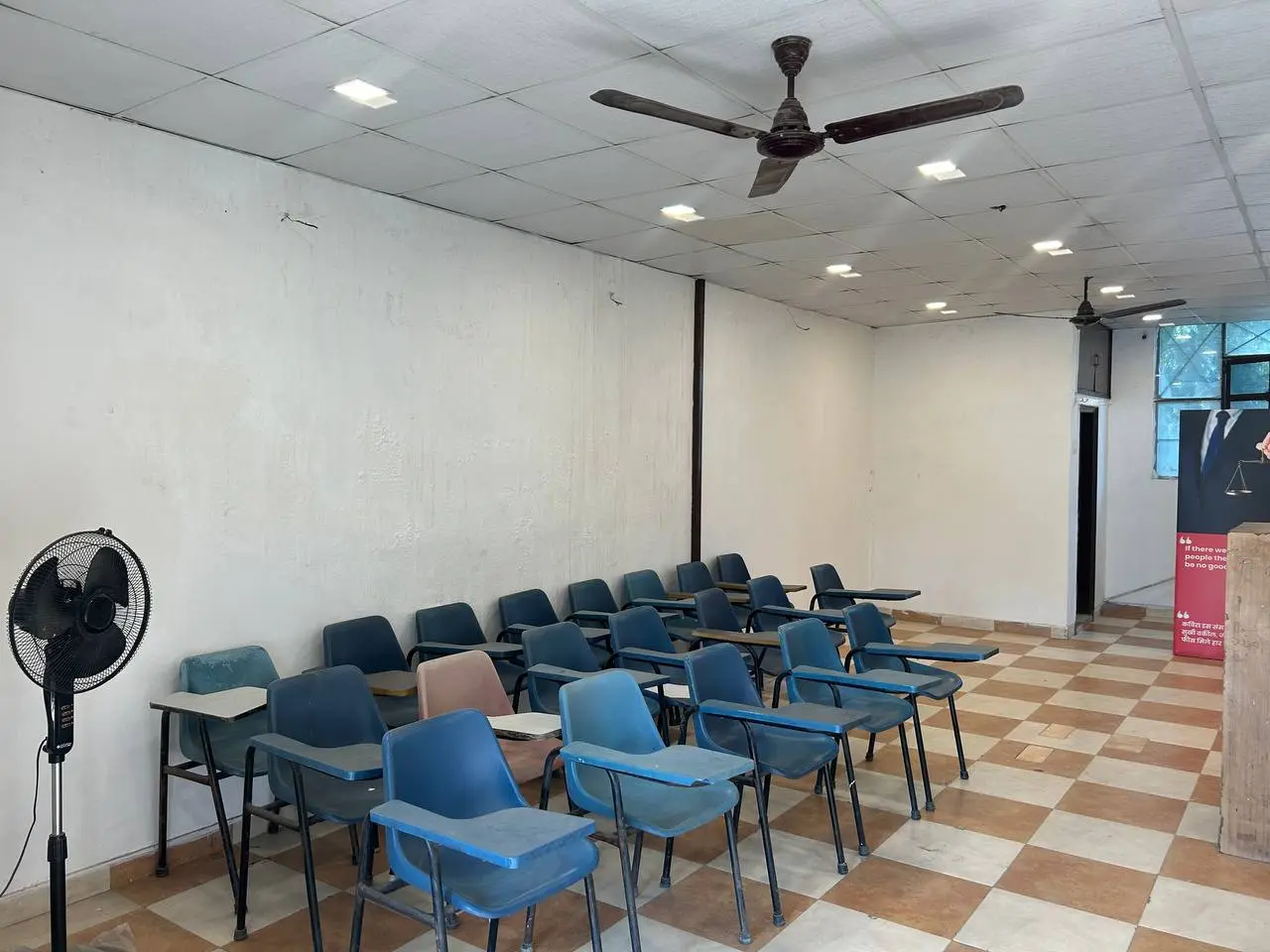
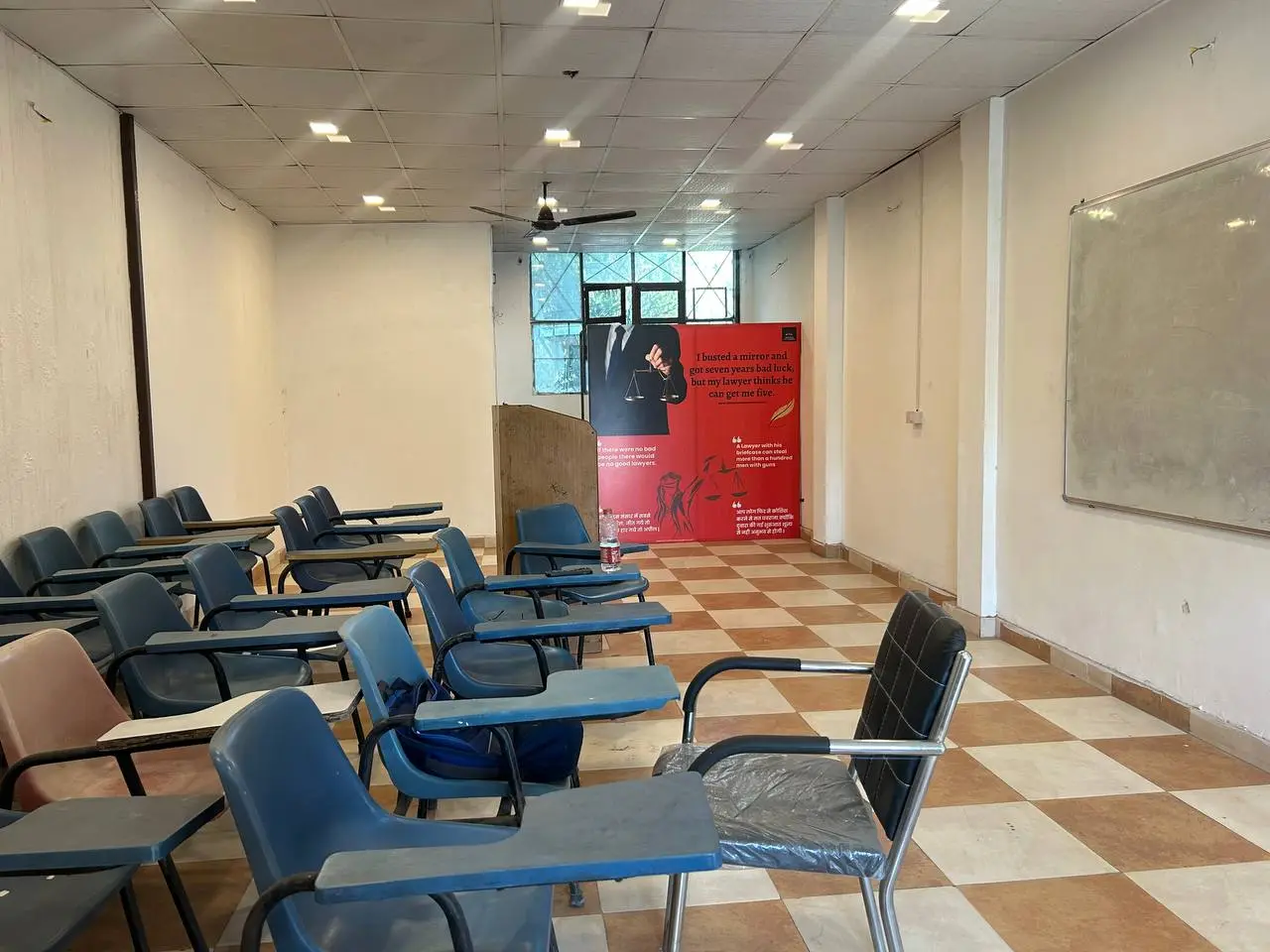
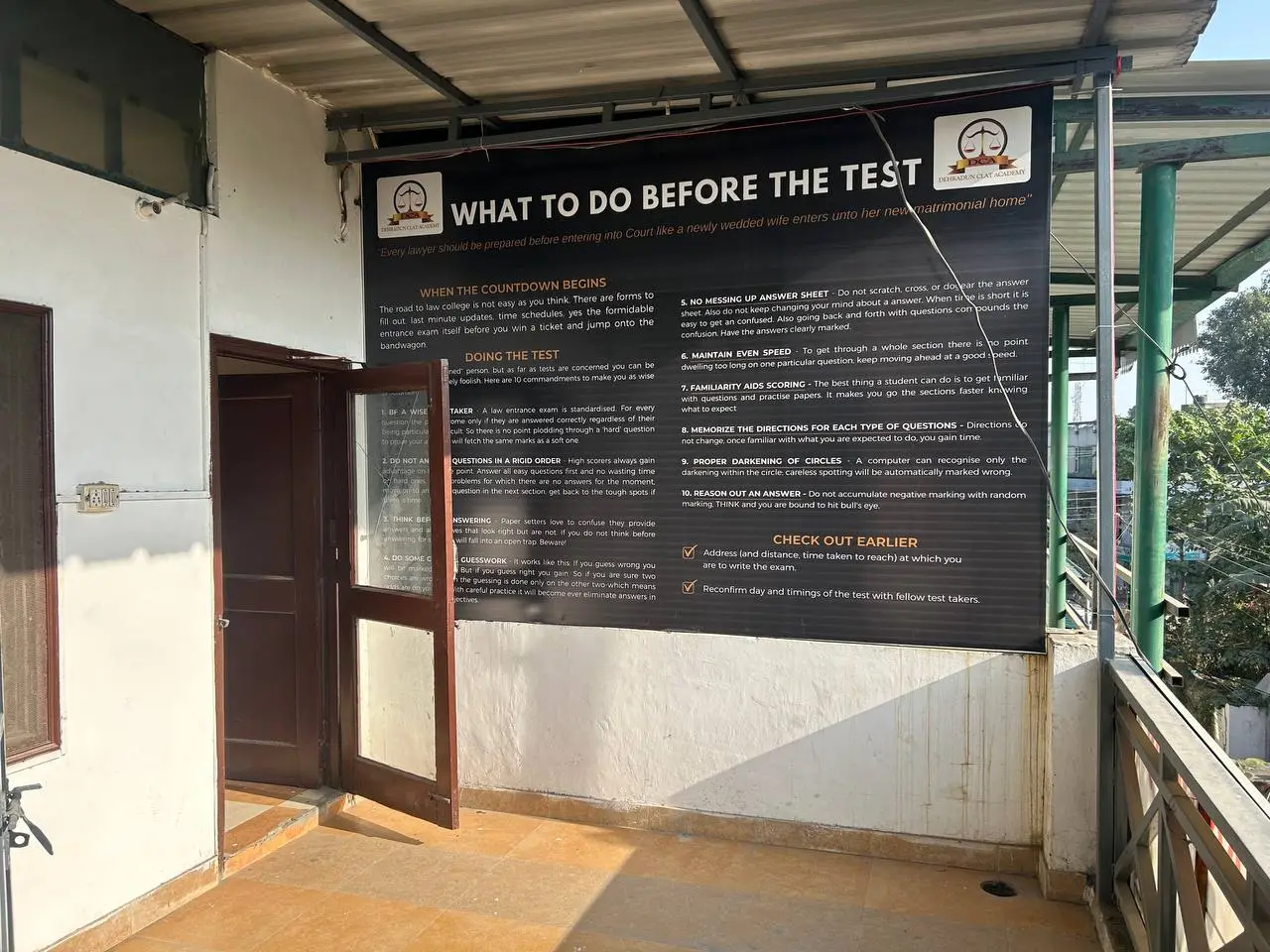

Take a quick glance at our Online Classes at Dehradun CLAT Academy

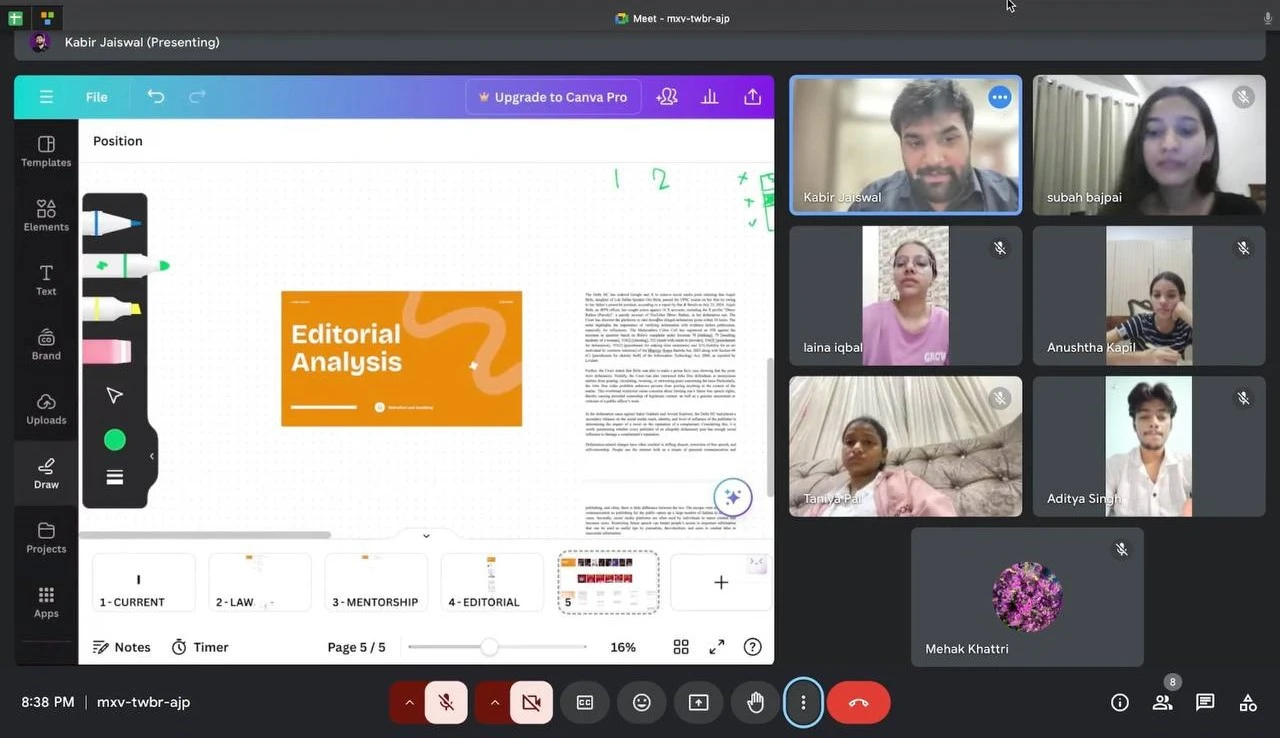
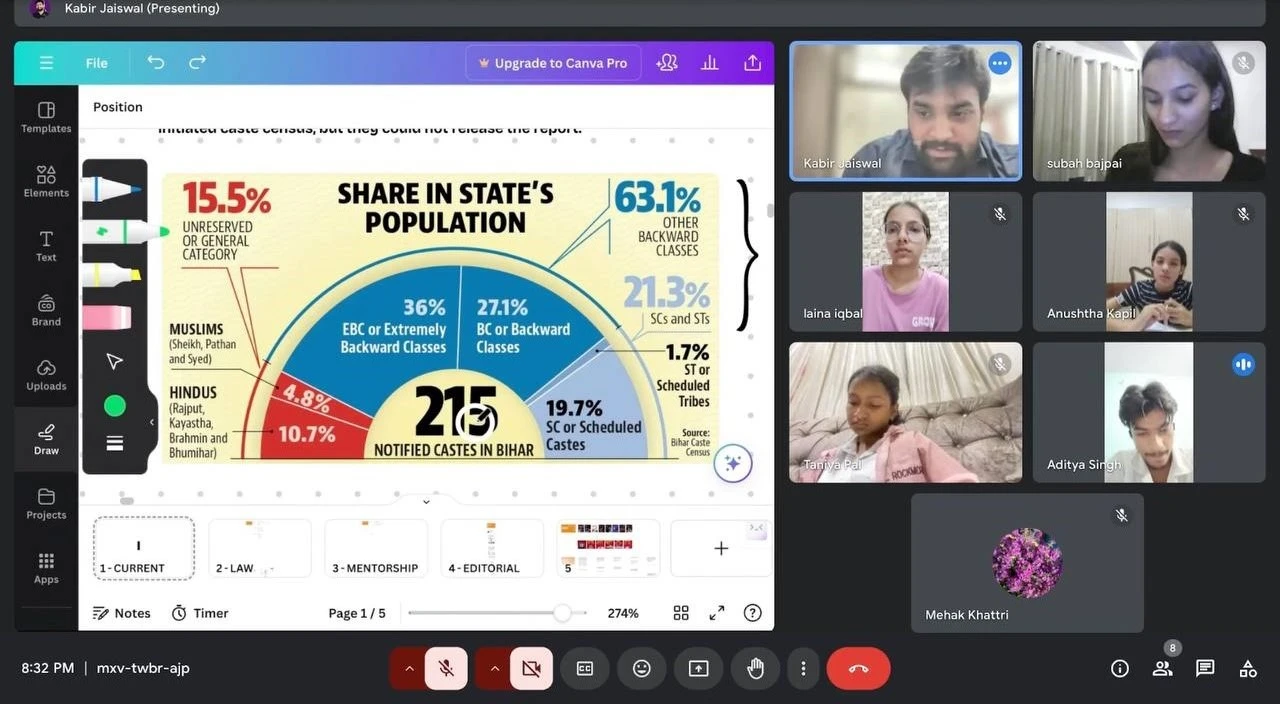

Know about CLAT Exam!
CLAT is the short form for the Common Law Admissions Test. It is an All-India based entrance examination that is conducted by the National Law Universities (NLUs). CLAT Exam is conducted for admission of students to the under-graduate (UG) and post-graduate (PG) level of studying law. In law, the UG level is known as BA LLB/BBA LLB, and the PG level is known as LL.M. Usually, the responsibility of examination conduction is rotated among the 24 existing National Law Universities and the responsibility is given to the ones that have greater seniority of the establishment.
- For the UG level CLAT Exam, there is no official upper age-limit set.
- To sit for the exam, candidates must secure a minimum percentage in their 12th Board Examinations. This percent varies for different candidates belonging to different categories:
- Candidates who belong to the OBC/Unreserved or Specially Abled Person (SAP) categories, are to secure a minimum of 45%.
- Candidates who belong to the categories of SC/ST are to secure a minimum of 40% in their 10+2 examinations.
The application form for the exam will be released in the first week of January. Candidates are to fill the application form ONLY through online mode by visiting the official website. The last date of submission of the form is till the last week of March.
There are different CLAT Examination application form fee for some categories. The for General/ OBC/ PWD/ PIO/ OCI/ NRI categories, candidates have to pay Rs 4,000 as the application fee. For the categories of SC/ ST/ BPL, Rs 3,500 is the application fee. Those candidates who request for past years’ papers at the time of application form fill-up will pay additional charges.
All the original documents are NOT to be submitted here. Original documents are strict to be submitted during the time of admission at respective universities. The following documents are required during registration-
- Recent Passport size photo with a white background
- A scanned signature document of the aspirant
- Educational qualification documents (mainly results)
- BPL Certificate (If it is applicable)
- PWD Certificate (If it is applicable)
- SC/ST/OBC Certificate (If any of the categories is applicable)
The CLAT Examination admit card is usually available from the third week of April. The exact date of release of admit card is displayed on their official website.
The topics to be examined for UG admission are English, Current Affairs, Legal Reasoning, Logical Reasoning, and Quantitative techniques.
- The subject English comprises of Passages, Reading, Comprehension, Inference, and Conclusion, Summary, Vocabulary, etc.
- Current Affairs is rather an open area that requires a whole lot of general knowledge. The syllabus broadly covers Contemporary Events of National and International Significance, Art and Culture, International Affairs, Historical Events of significance.
- Legal Reasoning holds the chapters of Rules and Passages of Law, Application of the rules and passages, etc.
- Logical Reasoning is comprised of areas of Argument – Premise and Conclusion, Inference, Relationships and Analogies, Contradictions and Equivalence, etc.
- Quantitative Techniques is the last topic and it covers chapters of Basic Algebra, Mensuration, Statistical Estimation, Graphs, Numerical Information, Ratio, and Proportion, etc.
Each of the sections of the exam paper will evaluate you on the basis of a passage with different word limits. You will be answering the objective type questions based on those passages. Only for the quantitative techniques section, you will be given a set of graphs or pictorial or diagrammatic or factual information and questions will be asked based on these.
The topics to be examined for PG admission are Constitutional Law, Administrative Law, Torts, Criminal Law, Company Law, Tax Law, and Labour & Industrial Law.
As your educational qualification increases, the subjects or the topics become more streamlined.
- Under Constitutional Law, there is Jurisprudence.
- Under the Administrative Law, the topic of importance is the Law of Contract.
- Under the Torts section, the important portion is Family Law.
- For Criminal Law, it is an important section called the Property Law.
- For the subject Company Law, the area of importance is Public International Law.
- Under Tax Law, it is most evidently the Environmental Law.
- And the last one being Labour & Industrial Law, whose section covers other general mandatory topics from the Undergraduate studies.
The original or scanned result of the 12th Board Examination is to be submitted by the respective candidates during their admission. If the candidates fail to do so, they will be declared ineligible to apply for admission and getting admitted to the desired University.
During the evaluation of the results obtained in the CLAT Examination, if there arises a problem due to few students getting equal marks, then other factors will be considered. The factors might include giving importance to separate sections like Legal Reasoning, age of the candidates, etc.